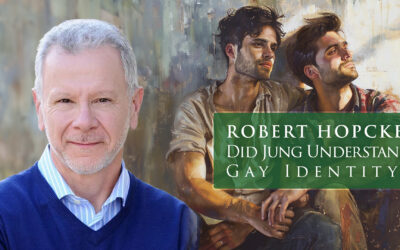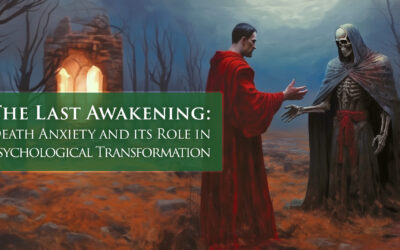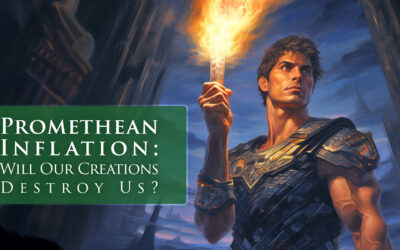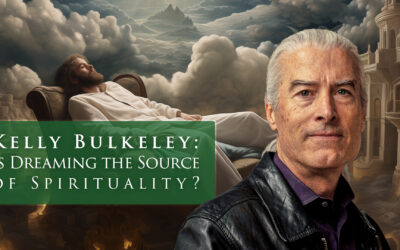OUR podcast
Subscribe to the show in your favorite application and never miss an episode!
APPLE PODCASTS | SPOTIFY | STITCHER | PLAYER FM | TUNE IN
ROBERT HOPCKE: Did Jung understand gay identity?
Jungian psychology has a fresh take on integrating the shadow and the individuation process for LGBTQ+ folks. It encourages everyone to embrace their identity to achieve authenticity and wholeness. Reinterpreting Jung’s anima and animus concepts challenges the traditional binary notions of gender and sexuality, leading to a more fluid and inclusive understanding of these concepts. Dreams and fantasies can help people understand themselves better, showing them the archaic strata of desires, conflicts, and potentials hidden within their psyche. By engaging with the collective unconscious and its archetypes, LGBTQ+ individuals can better grasp themselves, fostering a sense of belonging and connection to the broader human experience. Jungian psychology recognizes and validates the complexity and diversity of human experiences, offering a framework that acknowledges and explores the many ways LGBTQ+ identities manifest and evolve.
THE VITAL SPARK: Reclaim Your Outlaw Energies and Find Your Feminine Fire
The Vital Spark represents the true essence of an individual’s authentic self. It encompasses the dynamic qualities that drive personal growth, creativity, and self-assertion. It embodies the deep-seated energies and potentials within us that, when acknowledged and embraced, lead to a life of fuller expression, resilience, and purpose.
UNREQUITED LOVE: Can Eros be revived?
The arrows of Eros strike our hearts, and we are filled with wild love. Psychotherapists call this limerence, that initial stage of love when all we ache for is found in one person. This projection can carry us into a new relationship with intrepid confidence for a time. If that love is unreturned, a second archetype, Anteros, is called forth to punish those who reject love. Armed with his lead club, he strikes the unloving and drives them to ruin.
THE LAST AWAKENING: Death Anxiety and Its Role in Psychological Transformation
The death instinct (Thanatos) and the life instinct (Eros) symbolize the internal conflict between self-destructive urges and desires for creation, reflecting the psychological struggle with mortality. Religious traditions across the globe, from Buddhism’s focus on impermanence to Christianity’s belief in eternal life, offer diverse approaches to mitigating the fear of death, demonstrating the universal quest for peace in the face of mortality. The root of death anxiety in early childhood and the later development of defense mechanisms highlight a deep psychological battle against the awareness of death from a young age. Efforts to delay death through medical and lifestyle advancements juxtapose with spiritual teachings on accepting life’s transience, underscoring the human endeavor to navigate the reality of mortality. Psychoanalytic and existential treatments for thanatophobia emphasize the importance of acknowledging and integrating death into life for mental health.
SPEAKING TRUTH: Is it venom or a cure?
We examine the multifaceted nature of Truth and its impact on individuals and communities. We touche on the challenges of speaking Truth to power, the psychological dynamics of scapegoating and being disbelieved, the role of psychotherapy in uncovering and dealing with personal truths, and the significance of narrative and perception in shaping our understanding of reality.
Promethean Inflation: Will Our Creations Destroy Us?
Prometheus embodies the eternal struggle between conscious and unconscious forces within psyche. His act of rebellion, like the ego’s desire for independence, results in detachment from its unconscious origins. Wild archetypal forces become impossible to contain and chain him to a rock where an eagle eats his liver each day. Prometheus’s liberation by Heracles represents the relativization of the estranged inflated ego with the unconscious, fostering growth and a humble attitude.
Kelly Bulkeley: Is Dreaming the Source of Spirituality?
Dreams universally function as essential gateways to spiritual understanding, a truth echoed across cultures and eras. Modern sleep and dream research confront and expand upon the traditional views revealing a more complex nature of dreams. These dreams, whether as visitations, flights, or nightmares, reflect our existential questions and actively shape religious beliefs and practices. Merging empirical research with mystical interpretations, dreams are clearly more than mere reflections of waking life; they are direct conduits to deep spiritual insights.
DIVORCE: How can heartbreak lead to transformation?
The paradox of trust and betrayal lies at the core of intimate relationships. Trust, deeply entwined with love and commitment, harbors the risk of profound betrayal. This duality is inherent in close relationships, where the potential for betrayal exists alongside trust. While a source of profound connection, the intimate bond simultaneously sets the stage for possible betrayal, which, when realized, disrupts internal harmony, propelling psychological growth.










